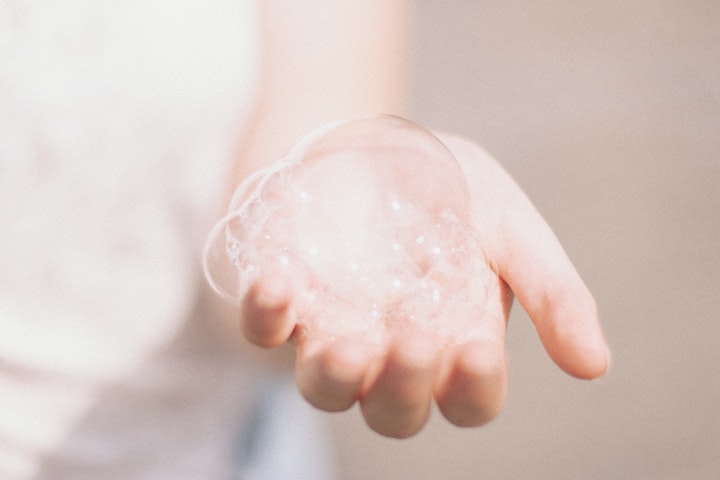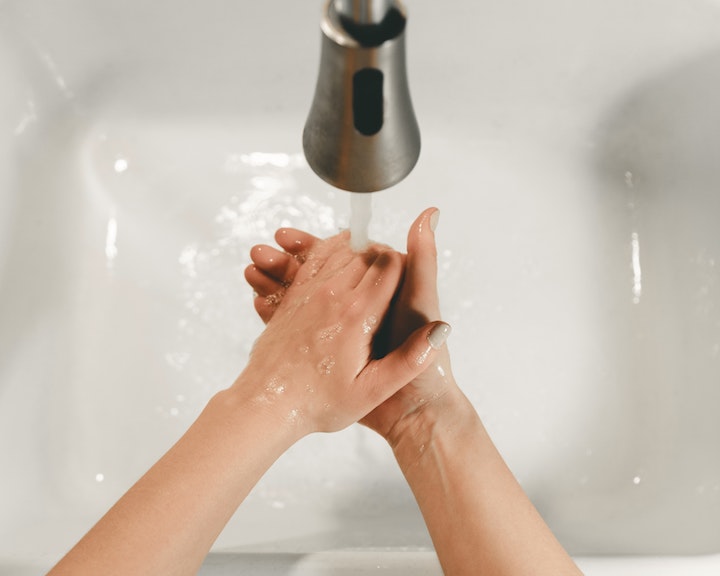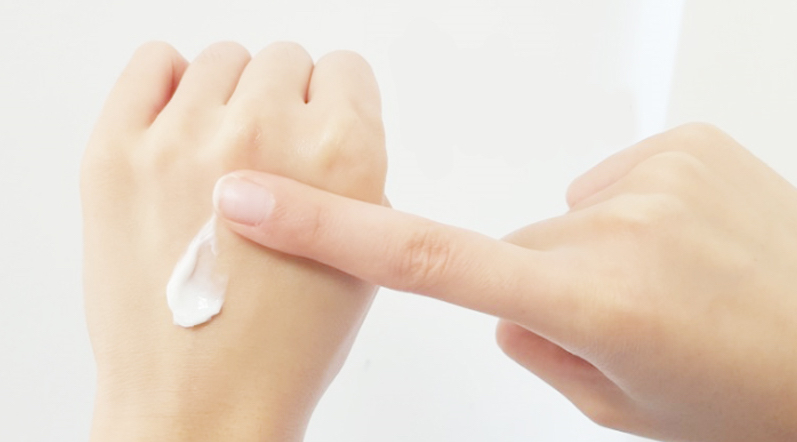We’ve all stepped up our handwashing game — and some of us have dry, cracked skin to show for it. Here’s what to do to keep your precious hands healthy in the age of social distancing.
No matter how diligent you were with hand hygiene before the COVID-19 pandemic, chances are you’ve still been washing them more often than usual over the past couple of months. There have been dozens (maybe hundreds?) of graphics, videos, memes, songs, and dances to ensure we all know how and for how long to wash our hands to get them squeaky clean. If you need to get into the mood, check out this gem by PIKOTARO, who gave us Pen-Pineapple-Apple-Pen a few years ago:
But what’s the secret to keeping your hands smooth and comfortable? Here are some simple things we can all do to keep our hands healthy in a pandemic.
Handwashing and how it affects our skin
Firstly, it’s important to note that we should all be following the World Health Organization’s guidelines and as well as those of our local health authorities in terms of handwashing and physical distancing, to reduce the chances of being infected by the coronavirus, and of course, to help contain its spread.
According to Matthew Page, Manager of Medical Marketing & Relations at CeraVe Canada, all cleansers use surfactants, which act like a magnet to remove dirt, oils, and bacteria from the skin. “These surface acting agents don’t necessarily kill viruses, but they do have the ability to remove them from the skin’s surface, allowing them to be flushed away,” explains Page.
While we often read about how to choose an effective hand sanitizer (the CDC recommends using an alcohol-based one that contains at least 60% alcohol), there isn’t as much information out there pertaining to what kinds of soaps and cleansers are best to use. It turns out that as long as you’re using one and using proper technique, you should be good in terms of getting your hands clean!

But that doesn’t mean you should use just any old bar of regular soap. “Normal skin pH is relatively acidic, and to maintain an environment for healthy skin, it should be between 4.0 and 6.0,” says Page. While a basic bar of soap can have a pH that ranges between 10.0 and 12.0, tap water varies between 7.0 and 8.5. “When skin is exposed to soaps and cleansers with a higher pH, the ability of its natural barrier to maintain its protective function is disturbed,” he warns.
These increases in pH can cause a cascading effect where the production of lipids in the skin, which act like mortar between its cells, is affected. “This leads to water loss and dryness, which in turn, allows bacteria to penetrate the skin, leading to inflammation, itch, and potentially infection if left untreated,” he adds.
Luckily, most of us have a natural “pH buffering capacity,” which helps to re-acidify the skin. “But anyone with an underlying skin condition, like eczema for example, may not have a strong buffering capacity,” warns Page. In this case, using cleansers with a high pH can induce flare-ups. According to the expert, studies have shown that it can take six hours or more for the skin to re-acidify after washing with alkaline (high-pH) cleansers. In other words, by washing our hands several times a day, we’re not giving our skin much time to regain its strength.

How to avoid dry, cracked hands
So, what should we be doing to keep our hands healthy? A few things, actually.
1. Use lukewarm — rather than hot — water to wash your hands. “Hot water evaporates quickly, and can deplete the lipids in the skin,” says Page.
2. After washing, pat your hands dry instead of rubbing them. Abrasive actions (like rubbing) can lead to irritation and dryness.
3. If you have an existing skin condition, speak to your doctor to find the best cleanser for you. “They may recommend a cleanser, such as CeraVe, with ceramides and a pH balanced to normal skin pH to help replenish lipids in the skin,” says Page.
4. Wear gloves when cleaning. This includes doing dishes and disinfecting surfaces. Yes, it’s an extra step, but it’ll help protect your hands from harsh chemicals and hot water!
5. Moisturize your hands after every wash. Why not place tubes of hand cream and lotion dispensers around the house as a reminder to moisturize?

What to look for in a hand cream
While any moisturizer is better than no moisturizer, they are not all created equal. Certain ingredients can help keep your hands feeling and looking healthy, like ceramides, which can restore some of the lipids lost during cleansing. Hyaluronic acid (which can hold 1000 times its weight in water), niacinamide (or vitamin B3, a moisture barrier-strengthening superstar), panthenol (or vitamin B5, another powerful humectant), and cholesterol (which also helps replenish lipids in the skin) can also all be beneficial.
But there are also ingredients to steer clear of, ideally. “It is recommended to stay away from hand creams with fragrance or strong active ingredients that are known to be potentially irritating like retinol, or exfoliating ingredients like glycolic acid or salicylic acid,” says Page.
What about alcohol? “Not all alcohols are bad for the skin: cetyl, stearyl, and cetearyl alcohol, for example, are fatty alcohols that are emollients and can actually help soothe and moisturize it,” says Page. You might, however, want to pass on ethanol and denatured alcohol in your hand cream.

Page also recommends considering the use of a barrier cream on top of a moisturizer. These provide an outer layer of protection from things like frequent handwashing or exposure to certain chemicals. “Barrier creams with dimethicone are a nice option, as they usually have a nice silky feel to them, while petrolatum and shea butter tend to be greasier to the touch, but provide a nice protective barrier to the skin nonetheless.”
I don't know about you, but I definitely wasn’t doing enough for my hands. *Slathers on hand cream as she continues typing* Moving forward, I’ll be switching to a gentler cleanser, and doing my best to moisturize my hands more often.
How have you been caring for your hands? What are some of your favorite hand creams? Share them in the comments below!
Loading...